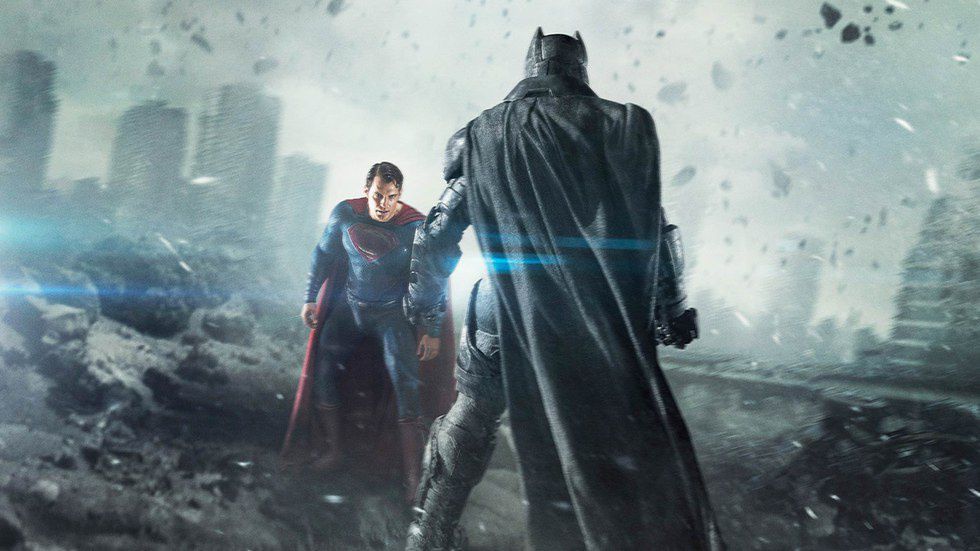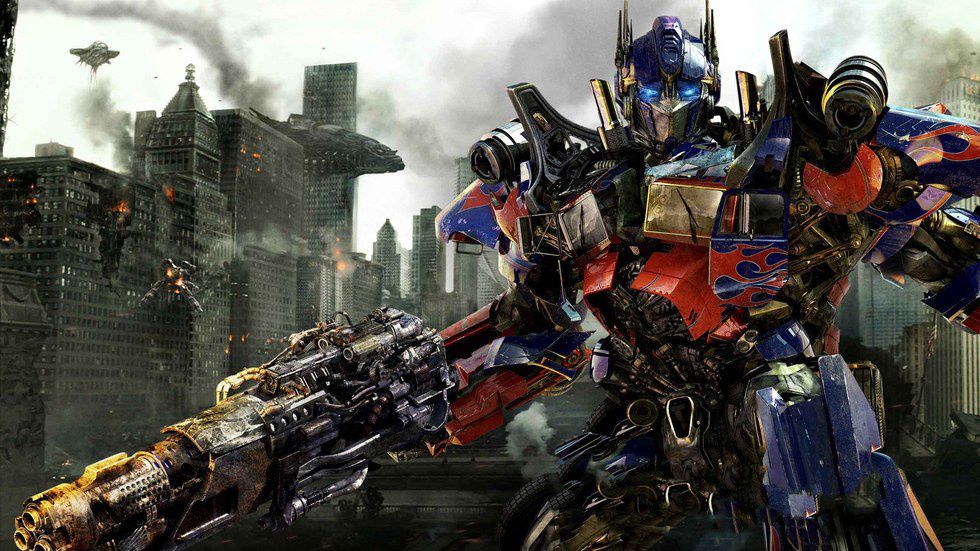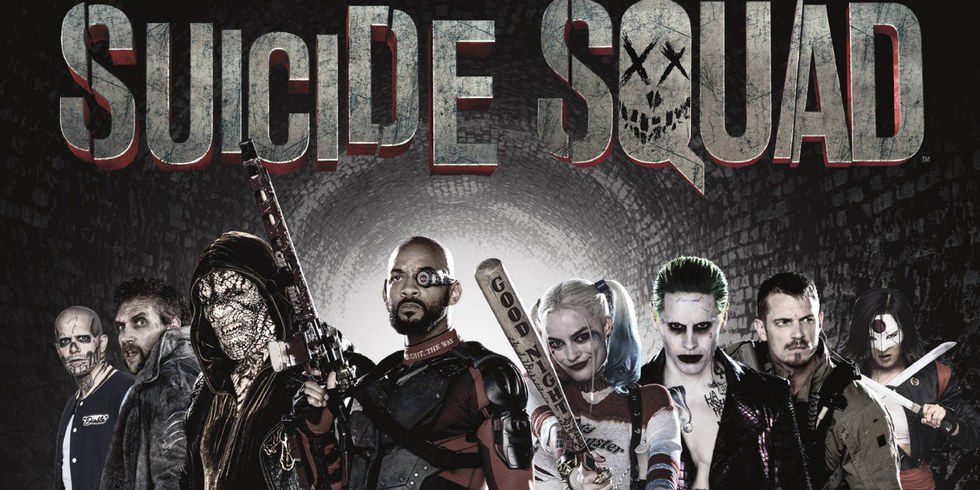Throughout this year, I have witnessed DC Comics attempt to mimic the successful model for comic book films created by Marvel Comics and their "Marvel Cinematic Universe". To this day, the "Marvel Cinematic Universe" has grossed over ten billion dollars in worldwide box office, making it the highest grossing film franchise to date. It makes sense that DC would want to emulate this successful model for their films. Like Marvel, the films of the "DC Extended Universe" promote the idea of a comic book style "shared universe" and interweaving continuity. This all sounds like a good idea, however in practice the "DC Extended Universe" has had nothing but a string of critical disappointments and disasters that have been holding the franchise back.
Of the three films in the "DCEU" so far ("Man of Steel", "Batman v. Superman: Dawn of Justice", and "Suicide Squad") "Man of Steel holds the highest critical praise with a rotten 55% on Rotten Tomatoes. "Batman v. Superman: Dawn of Justice" holds a 27% and "Suicide Squad" holds a 26%. After watching these films it is easy to see where these negative reviews are coming from. Most of the films spout an overly dark and depressing tone for no specific reason other than the shallow idea that it makes the films seem thematically deeper than they actually are. The last two films we overly edited to the point that the overall narrative lacks cohesion. The plots are so overly convoluted that Christopher Nolan would tell them to dial it back. And most of the films contain either stiff acting or annoying levels of over-the-top acting, such as Jared Leto's Joker and Jesse Eisenberg's Joker-- opps, I mean Lex Luthor; though you would make that mistake too if you watched "Batman v. Superman".
Despite the critical reception, these films have had relative commercial success. "Man of Steel" made over $600 million at the box office, "Batman v. Superman" made over $800 million, and "Suicide Squad" is about to cross $700 million. This pattern of critical failure mixed with financial success echoes another franchise recent franchise; the "Transformers". Like the "DCEU", the "Transformers" franchise has had nothing but critical failure, with the highest rated film at 57% and the lowest rated film at an 18% on Rotten Tomatoes. However, these films have had unprecedented financial success with two of the four films making over $1 billion at the box office and the lowest grossing film making over $700 million. What would cause a trend like this? Why would a film with such negative reviews be met with such commercial success. Like any crack-pot on the internet, I have my theories.
One of the best theories that I can come up with is that we all have a surface level need to see our heroes on the big screen. I too am guilty of paying money to see the first three "Transformers" films in theaters (the first one was O.K., but the second and third films were noisy and rambling garbage that pandered to the lowest common denominators of the American masses). Certain properties have built in audiences and fandoms that are so frighteningly loyal that they will go to any length to support their favored property (trust me, I'm in the "Star Wars" fandom). Films like these are also heavily marketed to the masses so almost everyone knows that a big and exciting film is coming out soon. These films also make sure that there is plenty of expensive looking action in the film (despite it not being well choreographed or staged) to pull the masses into seeing what is essentially a fireworks show; it looks pretty, but there's nothing beyond that.
This combination of ideas has led to the concept of a "critic proof" film, or a film that is guaranteed financial success despite the overall quality of the film. The "DCEU" seems to be heading down the same path that the "Transformers" did. However, the "DCEU" (while still financially successful) has met with some commercial snags. All three films were met with large box office drops in their second weekends and "Batman v. Superman", despite its financial success is largely seen as a disappointment. This is due to the fact that the film cost, a rumored, $400 million to make and had to make over $1 billion by Warner Brothers to not be considered a financial disappointment. The film also needed to make over $800 million (which it did) to not be considered a box office flop. While these films are financially profitable, at the moment, they have yet to secure a solid foundation to build on. Both the "Transformers" franchise and the "DCEU" show that some films can make money no matter what kind of press it gets. However, considering the increasing levels of disappointment in the amount of money made, maybe some audiences are becoming more critically aware and refuse to settle for low quality. One can only hope.




















